


































2023-2024
The following positions on the Executive Committee of the Association must be filled for the year 2023-2024:
Vice President-at-Large; Vice President, New Castle County; Secretary; Assistant Secretary; Treasurer; Assistant Treasurer; Six Members-at-Large



Note: The Vice President, Kent County and the Vice President, Sussex County will be those persons selected by, respectively, the Kent County Bar Association and the Sussex County Bar Association.
The following positions must be filled for the term as noted:
One (1) DSBA Representative to the Delaware Bar Foundation Board: Four-year term
One (1) DSBA Young Lawyer Delegate to the ABA House of Delegates: Two-year term
The Nominating Committee wants to consider all interested candidates. If you are interested in serving on the Executive Committee or would like to recommend a candidate, please send your name or the candidate’s name along with a CV and at least one letter of nomination to Mark S. Vavala, Executive Director, by email at: mvavala@dsba.org or by mail at: Delaware State Bar Association, 405 North King Street, Suite 100, Wilmington, DE 19801 by February 10, 2023.
The Nominating Committee consists of:

Michael F. McTaggart, Chair Kathleen M. Miller, Vice-Chair
Aaron R. Goldstein (2023)
Achille C. Scache (2023) Kelley M. Huff (2023)
Wilson A. Gualpa (2023)

Christofer C. Johnson (2023)
Brenda James-Roberts (2023) Emily A. Bryant-Álvarez (2024)
Constance A. Dorsney (2024)
LaKresha Roberts Moultrie (2024) Jacqueline A. Rogers (2024) Eric S. Klinger-Wilensky (2024) Srinivas M. Raju (2024) Brandon R. Harper (2024) Sarah T. Andrade (2025)
Barzilai K. Axelrod (2025) Nicholas J. Caggiano, Jr. (2025) Shae L. Chasanov (2025) Thomas H. Kovach (2025) Kathleen A. Murphy (2025) Emilie R. Ninan (2025)
Melissa L. Dill (2023) Keith E. Donovan (2024) Nicole M. Faries (2025)

Stephanie A. Tsantes (2023) Etta R. Mayers (2024) Timothy G. Willard (2025)
Delaware State Bar Association
405 N. King Street, Suite 100 Wilmington, Delaware 19801 (302) 658-5279
The Delaware State Bar Association is looking for a number of talented members to join the
Executive Committee and lead the DSBA to continued success.
WE NEED YOUR HELP TO FIND STRONG LEADERS FOR THE FUTURE!
PRESIDENT
Charles J. Durante
EXECUTIVE DIRECTOR
Mark S. Vavala
EDITORIAL BOARD
Laina M. Herbert
Jason C. Powell
Kristen S. Swift
Seth L. Thompson
EXECUTIVE COMMITTEE LIAISON
Mary Frances Dugan
Valerie A. Caras
Denise Del Giorno Nordheimer
Adria B. Martinelli
Victoria R. Sweeney
Holly O. Vaughn Wagner
Rebecca Baird
The Bar Journal is published and distributed by the Delaware State Bar Association
405 North King Street, Suite 100 Wilmington, DE 19801
P: 302-658-5279 F: 302-658-5212 www.dsba.org
© Copyright 2022 by the Delaware State Bar Association. All Rights Reserved.
The Bar Journal is the independent journal of the Delaware State Bar Association. It is a forum for the free expression of ideas on the law, the legal profession and the administration of justice. It may publish articles representing unpopular and controversial points of view. Publishing and editorial decisions are based on the quality of writing, the timeliness of the article, and the potential interest to readers, and all articles are subject to limitations of good taste. In every instance, the views expressed are those of the authors, and no endorsement of those views should be inferred, unless specifically identified as the policy of the Delaware State Bar Association.
The Bar Journal is published monthly with a combined July/August issue.
All correspondence regarding circulation, subscriptions, or editorial matters should be mailed to:
Editor, DSBA Bar Journal
Delaware State Bar Association
405 North King Street, Suite 100 Wilmington, DE 19801 or emailed to: rbaird@dsba.org
Letters to the Editor should pertain to recent articles, columns, or other letters. Unsigned letters are not published. All letters are subject to editing. Send letters to the address above, Attention: Editor, Bar Journal.
658-5279, ext. 102 Email: rbaird@dsba.org
Read The Bar Journal online at www.dsba.org

Abreakthrough Supreme Court ruling establishes a constitutional right that upends a patchwork of oftenpunitive state laws. The holding seeps into the culture and over a half-century, its principles are accepted throughout society. Then, with scant warning, its existence is threatened.
I refer of course to the protection for the press and free speech generally that was established in New York Times v. Sullivan, the 1964 decision that squashed a confiscatory Alabama libel verdict and enabled the press to do its job thereafter without fear that a minor error could backfire into bankruptcy for the reporters and publisher.
The ruling also protects private citizens. You can criticize a public official, or any public figure, and not be held liable at damages, unless you made a statement “with knowledge that it was false or with reckless disregard of whether it was false or not.” 376 U.S. 254 (1964).
This maxim, commonly although inexactly described as the actual malice standard, sounds reasonable, but it did not prevail for most of this nation’s history. Public officials sued and recovered damages against harsh critics. Newspapers and magazines were regularly sued by thin-skinned actors and other subjects of their critics’ barbs. Truth might be a defense, but not everywhere. And how does one “prove” the truth of an opinion? Under common-law libel laws, commentary and dissent could expose the writer to financial sanction, even jail time. The threat defanged much of the press.
In Sullivan , the Supreme Court unanimously decided that an author or publisher could not be subject to damages for libel just because there were errors in the publication. “Erroneous statement is inevitable in free debate, and that it must be protected if the freedoms of expression are to have the breathing space that they need to survive,” wrote Justice William Brennan. 376 U.S. at 271.
The decision gave constitutional support to generations of reporting, analysis and commentary.
Yet, murmurs of discontent have emanated from the Supreme Court. In a 2019 concurrence on a denial of certiorari, Justice Clarence Thomas argued that “the Constitution does not require public figures to satisfy an actual-malice standard in state-law defamation suits.” McKee v. Cosby, 139 S. Ct. 675 (2019) Thomas submitted that neither the scriveners of the First Amendment, nor the state and federal lawmakers who voted after the Civil War to apply its protections to the states by adopting the Fourteenth Amendment, intended to strip government of the ability to permit money damages — or perhaps criminal sanctions — on persons who criticize public figures. He suggested that the states are “perfectly capable” to police libel and defamation cases under their own standards, without the constitutional protections announced in Sullivan, and posited that criminal prosecutions for libel are not prohibited by the Constitution.
This position is frightening. Delegating libel law to state courts without regard to the Constitution would revive a world where truth is not a defense, where a thinskinned public official could sue over hurt
fe elings, where inconsequential errors published in good faith could bankrupt the writer and publisher, where the threat of capricious local juries and partisan state courts could intimidate the independent press into supine silence.
As late as the early twentieth century, with only Justice John Harlan dissenting, the Supreme Court let stand a contempt judgment against an editor for publishing articles and a cartoon criticizing a judge. The editor was not allowed to argue that the critical comments were accurate. Patterson v. Colorado, 27 S. Ct. 556 (1907).
Delaware’s tradition was no prouder. When a touchy legislator sued a Wilmington newspaper, “the truth when pleaded and given in evidence is not a defense in bar of the action. The statute requires the further proof that the libel was written or published properly for public information, and with no malicious or mischievous motives.” Donahoe v. Star Publishing, 53 A. 1028 (Del. Super. 1902). The competing Morning News was so cowed by this state of the law that it didn’t even describe the accusation that pulled its competitor to the defense table.
This punitive approach emanated from Blackstone himself. “To punish (as the law does at present) any dangerous or offensive writings, which when published, shall on a fair and impartial trial be adjudged of a pernicious tendency, is necessary for the preservation of peace and good order, a government and religion, the only solid foundation of civil liberty.” Commentaries 4:150-153.
The First Amendment’s solicitude of the press rebuked this censorious tradition. As Justice Potter Stewart noted, “the
Free Press Clause extends protection to an institution. The publishing business is, in short, the only organized private business that is given explicit constitutional protection.” 26 Hastings L.J. 631 (1975).
Lawyers should appreciate the need to protect the press. Lawyers and journalists have much in common: similar skills, career trajectories, weaknesses and aspirations. Each profession is drawn from the literate, public-spirited sector of the cafeteria. Many have worked in both professions.
Above all, a vigorous press is, like a well-functioning legal system, an indispensable pillar of democracy. The rule of law establishes standards for behavior and due process to resolve disputes. The press informs the public. One profession is rooted in the pursuit of fact. The other is based on advocacy, best made when carefully grounded in fact.
There is another critical similarity. Both professions make mistakes. Various doctrines protect lawyers and judges from sanction when errors occur in good faith. As a Superior Court judge once told a continuing education audience, “There
is error in every trial. The question is whether it is harmless or reversible.”
Sullivan likewise ensures that the journalist doesn’t face strict liability for factual error.
Certainly, applications of the Sullivan doctrine can be debated, for example where courts have extended it to private figures. Rod Smolla, a nationally-recognized expert on free speech long before his recent seven-year service as dean of Delaware Law School, supports the essential holdings but observes, “they have been misinterpreted by many (though not all) lower state and federal courts, to reach perverse results that fail to strike a constitutionally sound balance between the values of freedom of speech and the values of the protection of individual reputation and human dignity.”
A second Supreme Court skeptic, Justice Neil Gorsuch, shares this view. “The actual malice standard has evolved from a high bar to recovery into an effective immunity from liability.” Berisha v. Lawson, 141 S. Ct. 2424 (2021). Gorsuch focuses less on the Eighteenth Century than the recent evolution of the press
from mass-circulation periodicals and regulated broadcasters to a cacophony that “facilitates the spread of disinformation.”
Yet, abandoning the essential constitutional protection of Sullivan would subject journalists, essayists — and each of us — to the whims of state legislatures and courts. If you criticize the policies of another state’s governor, your commentary will electronically reach that state and may subject you to its jurisdiction. Perhaps the state’s law requires that even a truthful article not be “mischievous.”
Revoking federal constitutional protections can unleash harsh consequences.
Chuck Durante, the President of the Delaware State Bar Association, is a partner at Connolly Gallagher LLP, fellow of the American College of Trust and Estate Counsel, chair of the Board of Editors of Delaware Lawyer magazine, president of the Delaware Sports Museum and Hall of Fame, trustee of the Delaware Historical Society and president of the Delaware Sportswriters and Broadcasters Association. He can be reached at cdurante@ connollygallagher.com.
When you chose to work in this profession, you gave up the notion that you didn’t have to get involved. It is in the DNA of every true attorney that they want to make things right, whether it is for their client or for the community. Making things right requires you to be a part of something. Every year when I hound people to join the Bar Association, I invariably get the question, “What’s in it for me?” I always respond that they have asked the wrong question. It’s not what is in it for me, but “What’s in it for us?”
The legal profession cannot turn a blind eye to oppression, injustice, corruption, inequity, or mediocrity. As the guardian of the profession, the Bar Association has an obligation to challenge those things which diminish the effectiveness of our laws. And, we, as members of the Bar, have an obligation to work with those entities, such as the Bar Association, to improve the law and the lives of the citizens.
At a recent seminar for DSBA, Mike Schurr, the prolific creator of The Good Place, Brooklyn 99, and Parks & Recreation , and writer for The Office (where he also acted as Dwight’s cousin Mose) spoke about ethical behavior. When asked if there were ethical reasons to join the Bar Association, Mr. Schurr opined that it would be ethically better to join an organization such as DSBA in order to work together rather than individually, and thereby improve the profession as part of a team.

But joining is only the first step. When you join this profession, you have
a n obligation to continue to work for the betterment of it and there are numerous ways to do that. Because I am part of the Bar Association, I will focus on those ways you can get involved within the Association.
1 Be a mentor. There are a lot of young lawyers, lawyers of color, and lawyers in need of professional advice who could use your knowledge. There are also law students trying to navigate the unfriendly process of becoming an attorney. You can always opt into the mentoring program through DSBA to lend a hand. In doing so, you help strengthen the legal profession.
It is in the DNA of every true attorney that they want to make things right, whether it is for their client or for the community.
2 Support DE-LAP by joining the Professional Guidance Committee or the Lawyers’ Assistance Committee. These committees appointed by the President of DSBA in conjunction with recommendations made by DE-LAP, help attorneys who are struggling with simple professional issues, serious addiction issues, and pretty much everything in between.
3 Ask to be part of any number of other committees. President Chuck Durante is always looking for excellent candidates for the various committees that support our bar. From the Awards Committee which votes on nominations to recognize excellence in the perfection, to the Diversity Committee which seeks to enact DSBA’s diversity initiatives, to the Judicial Appointments Committee which assists the JNC in making wise choices, to the Professional Ethics Committee which seeks answers to confusing ethical questions.
4 Join a section. The Sections are the life-blood of the association. Each section offers opportunities to discuss the law, write new law, or perform charitable and professional tasks.
5 Volunteer to help put on a CLE. DSBA’s main three sources of income are through its membership drive, its insurance sales, and its educational programs. The latter provides a significant source of income to help fund the operations of the office and the salaries of our excellent staff. We definitely need people to attend the seminars and, more importantly, the brilliant
Community is what being a lawyer is about. Very few attorneys develop a practice without belonging to something. It is the connection to others that makes you personally more successful.
of time, you participate in the audience that encourages others. By celebrating with community, you bring the community closer.
minds of our bar to help make these seminars interesting and attractive.
6 Write an article. The Bar Journal , the best legal publication in Delaware, and the Delaware Law Review are always seeking new writers to keep these publications excellent and fresh. You have something to say which will make the law better for all of us. Say it in words!

7 Become a leader. Each year, new people step forward to serve on the Executive Board of the Bar Association. Others become section chairs or com-
mittee chairs. Nothing improves an organization more than new perspectives and new ideas. You can make your opinions known if you take the chance to seek an office.
8 Support the various events of DSBA. From the January MLK Breakfast, to the Spring Festival to Law Day, to the Bench and Bar to the Fall Festival to the Chris White Awards to the December Awards Program, there are always ways for you to step in and step up. By joining these events, you make them better. By giving a small amount
Community is what being a lawyer is about. Very few attorneys develop a practice without belonging to something. It is the connection to others that makes you personally more successful. Sure, I said don’t ask, “What’s in it for me?” but even if that’s your only thought, there’s still so much in it for you. When you make yourself part of the community, you build the ties that might get you a client. Many members of sections refer clients to each other. Or, if you want to be a judge, just take a look at how many judges have been active in the Bar Association.
To be involved is to be community. To be community is to make things easier through common purpose.

Contact Jennifer at JPacilli@coverrossiter.com to get started today


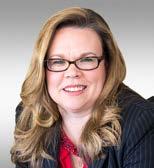
2018 & 2012
Superstars in Business Winner 2017 & 2011 Award of Excellence Winner


Mark Vavala is the Executive Director of the Delaware State Bar Association. He can be reached at mvavala@dsba.org. (302) 656-6632 www.CoverRossiter.com

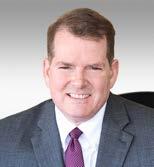
Lawyers turn to us to work together on complex matters. We can help navigate the challenges you and your clients are facing. Great advice. Great people.
Directors: Marie Holliday (Managing Director), Pete Kennedy, Jennifer Pacilli, and Eric Williams

DSBA has a new member benefit to share — Kaplan Bar Review! Preparing for a future bar exam? DSBA members now receive an exclusive discount on complete bar review and supplemental materials. Take advantage of $200 off Kaplan’s complete DE Bar review course, plus Kaplan’s free MPRE course through your DSBA membership. To find out more about the Kaplan Bar Review discount through DSBA and the full range of benefits available to DSBA members, visit www.dsba.org.
Do all the good you can, by all the means you can, in all the ways you can, in all the places you can, at all the times you can, to all the people you can, as long as ever you can.
– John Wesley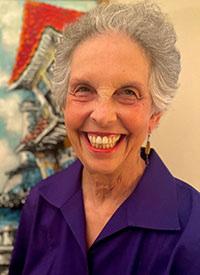
Governor John Carney, First Lady Tracey Quillen Carney, and Senator Tom Carper were on hand Thursday, October 13, 2022 at the Executive Banquet and Conference Center in Newark to honor the newly inducted women into the Delaware Women’s Hall of Fame.
This year, DSBA member and former Family Court Judge Aida Waserstein was honored along with Dr. Ilona Holland, a children’s educator with a focus on literacy and the widow of Justice Randy Holland, and five other distinguished women including, Anne Canby, the first woman to lead the Delaware Department of Transportation; Alice Dunbar-Nelson, suffragist, poet, activist, and educator; Carolyn Fredericks, Executive Director of the Modern Maturity Center and seniors advocate; Teri Quinn Gray, the CEO of the science-based crop protection company, Provivi; and Dr. Karyl Rattay, the Director of Delaware’s Division of Public Health.
Judge Waserstein, who came to America amidst turmoil in Cuba as an unaccompanied 13 year old girl, has the distinction of being the first Hispanic American member of the Delaware Bar and the first Hispanic appointed as a judge in Delaware. Since her retirement, she has written several children’s books which seek to help foster children by telling her own story.
“We are all stronger when we welcome people of other backgrounds, with distinct languages, skills, talents and world views,” she said accepting her award. She added, “The result is a fresh outlook and innovative ideas that nourish our society and make us better people with deeper foundations of caring and understanding.”
Dr. Holland, a children’s educator and author has written many children’s books and works with the Delaware State Library System. Upon receiving her award, Dr. Holland addressed young people, telling them to “never give up,” and continuously seek out intelligent, fierce, and kind role models, and to “make a difference.”
The Hall of Fame of Delaware Women was first established in 1981 by the Delaware Commission for Women, a former division of the Secretary of State. The induction ceremony is the oldest annual celebration of its kind commemorating Delaware women. The new Delaware Women’s Hall of Fame Committee, created in 2017, is responsible for fostering an understanding of and appreciation for the many contributions of the women of Delaware to their home, community, state and nation.
Profundo Bono, the Delaware legal community’s non-profit troupe of unlikely thespians, will pay tribute to their long-time scriptwriter, musician, and friend the late Judge Robert Young by performing his last script, The Finishing School , on November 11 & 12 at the Laird Performing Arts Center at the Tatnall School in Wilmington starting at 7:30 p.m. and November 13 at The Schwartz Center for the Arts in Dover at 2:00 p.m. The Finishing School is a rip-roaring comedy based on a dark Broadway show written by Lillian Hellman in 1934. The performance — including 24 musical numbers — will leave the audience in stitches (medical care not provided). The Finishing School will be the group’s ninth production since 2004, with each comedic script written by Judge Young being loosely based on a dreary piece of literary fiction. In past years, there have been shows based on the works of William Shakespeare, Herman Melville, Tennessee Williams, and Arthur Miller. Tickets, which remain at the bargain price of $25 per seat, may be purchased at www.profundobono.org, and interested sponsors and advertisers should contact Adam Hiller at ahiller@adamhillerlaw.com. All net proceeds from the performances are donated to the Combined Campaign for Justice, which raises funds to provide operating support for Delaware’s three agencies dedicated to providing legal assistance to indigent clients.





O n a perfect autumn day at Ramsey’s Farm in Wilmington, DSBA members and DSBA staff spent the afternoon enjoying a bonfire, going on hayrides, painting pumpkins, roasting marshmallows, enjoying snack and drinks, and hot donuts as part of DSBA’s annual Fall Festival. Join us next year for more fall fun!
Condolences to Ronald G. Poliquin, Esquire, on the death of his father, Donald G. Poliquin, who died on October 5, 2022.
Condolences to The Honorable Vivian L. Medinilla on the death of her mother, Myriam Schwartz de Medinilla, who died on October 7, 2022.
Condolences to William Annos, Esqurie, on the death of his wife and The Honorable Theodore W. Annos and Constance A. Dorsney, Esquire, on the death of their mother, Irene Jester Annos, who died on October 14, 2022.
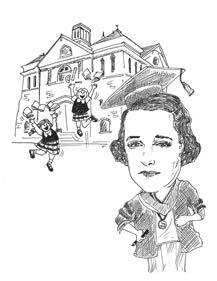
If you have an item you would like to submit for the Of Note section, please contact Rebecca Baird at rbaird@dsba.org.
For information on submitting articles for publication in the Bar Journal, please contact Rebecca Baird at rbaird@dsba.org.
for Articles! Do you have a great idea?DSBA HAPPENINGS
This committee provides peer counseling and support to lawyers overburdened by personal or practice-related problems. It offers help to lawyers who, during difficult times, may need assistance in meeting law practice demands. The members of this committee, individually or as a team, will help with the time and energy needed to keep a law practice operating smoothly and to protect clients. Call a member if you or someone you know needs assistance.
New Castle County
Karen Ann Jacobs, Esquire, Chair*
Dawn L. Becker, Esquire
John P. Deckers, Esquire
David J.J. Facciolo, Jr., Esquire
David J. Ferry, Jr., Esquire
Robert D. Goldberg, Esquire
Laura Nastase Najemy, Esquire
Denise D. Nordheimer, Esquire
Kuhu Parasrampuria, Esquire
Kenneth M. Roseman, Esquire*
Yvonne Takvorian Saville, Esquire
R. Judson Scaggs, Jr., Esquire*
Victoria R. Sweeney, Esquire
Gregory Brian Williams, Esquire
Lydia E. York, Esquire
Kent and Sussex County
Candace E. Holmes, Esquire, Chair
Crystal L. Carey, Esquire
Edward Curley, Esquire
Clay T. Jester, Esquire
Christopher D. Tease, Esquire
The Honorable William L. Witham, Jr.
Honorary Volunteer Members:
Victor F. Battaglia, Sr., Esquire
Mary C. Boudart, Esquire
Wayne A. Marvel, Esquire
Bayard Marin, Esquire
Michael F. McTaggart, Esquire
Mary E. Sherlock, Esquire**
I. Barry Guerke, Esquire**
Dennis L. Schrader, Esquire**
E. Alan Uebler, Esquire
David A. White, Esquire
Carol P. Waldhauser, Executive Director
DSBA/DE-LAP Liaison
Practice Monitor
Past Co-Chair
Thursday, November 3, 2022 • 12:30 p.m. – 1:30 p.m. Torts and Social Media 1.0 hour CLE credit in Enhanced Ethics Live Seminar at DSBA with Zoom Option Friday, November 4, 2022 • 9:00 a.m. – 12:15 p.m.
Supreme Court Review 2022: A Discussion of Decisions at the Highest State and Federal Judicial Levels 3.0 hours CLE credit Live Seminar at DSBA Wednesday, November 9, 2022 • 9:00 a.m. – 4:30 p.m.
Fundamentals of Civil Litigation 2022 6.0 hours of CLE credit Live Seminar at DSBA with Zoom Option Tuesday, November 15, 2022 • 9:00 a.m. – 10:00 a.m.
A Higher Bar: How to Exceed Client Expectations in a Virtual World 1.0 Hour CLE credit in Enhanced Ethics Live Seminar via Zoom Wednesday, November 16, 2022 • 12:00 p.m. – 1:00 p.m. Behind the Cool Image: Lawyering in the 21st Century: Workshop 2 1.0 hour CLE credit in Enhanced Ethics Live Seminar at DSBA with Zoom Option
Saturday, December 3, 2022 • 9:00 a.m. – 11:00 a.m. Breakfast with Santa Live at DSBA
Wednesday, December 7, 2022 • 12:00 p.m. – 2:00 p.m. Awards Luncheon Hyatt Place / Riverfront Events, Wilmington, DE
Dates, times, and locations of Events and CLEs may occasionally change after time of press. Please consult the DSBA website for the most up-to-date information at www.dsba.org.
Tuesday, November 1, 2022 • 3:30 p.m.
Estates and Trusts Section Meeting
Zoom Meeting, see Section listserv message for link and password
Tuesday, November 8, 2022 • 12:00 p.m.
Litigation Section Meeting
Morris James LLP, 500 Delaware Avenue, Suite 1500, Wilmington, DE Thursday, November 10, 2022 • 12:00 p.m.
Executive Committee Meeting
Delaware State Bar Association, 405 North King Street, Suite 100, Wilmington, DE Friday, November 11, 2022 • 12:00 p.m.
Workers’ Compensation Section Meeting
Zoom Meeting, see Section listserv message for link and password Wednesday, November 16, 2022 • 9:00 a.m.
ADR Section Meeting
Zoom Meeting, see Section listserv message for link and password
Tuesday, December 6, 2022 • 3:30 p.m.
Estates and Trusts Section Meeting
Zoom Meeting, see Section listserv message for link and password
Tuesday, December 13, 2022 • 12:00 p.m.
Litigation Section Meeting
Morris James LLP, 500 Delaware Avenue, Suite 1500, Wilmington, DE Thursday, December 15, 2022 • 12:00 p.m.
Executive Committee Meeting
Delaware State Bar Association, 405 North King Street, Suite 100, Wilmington, DE Thursday, December 15, 2022 • 4:00 p.m.
Elder Law Section Meeting
Estate and Elder Law Services of Delaware, P.A., 2961 Centerville Road, Suite 350, Wilmington, DE and Zoom Meeting, see Section listserv message for link and password Friday, December 16, 2022 • 12:00 p.m.
Workers’ Compensation Section Meeting Zoom Meeting, see Section listserv message for link and password
Refer to the DSBA Section Listserv messages for the most up-to-date information on Section Meetings. Please contact LaTonya Tucker at ltucker@dsba.org or (302) 658-5279 to have your Section or Committee meetings listed in the Bar Journal .
Charles J. Durante President
Kate Harmon President-Elect
Mary Frances Dugan Vice President-at-Large
David A. White
Vice President, New Castle County
Anthony V. Panicola Vice President, Kent County
Alaina M. Chamberlain
Vice President, Sussex County
Samuel D. Pratcher III
Vice President, Solo & Small Firms, New Castle County
Jessie R. Benavides
Vice President, Solo & Small Firms, Kent County
Stephen A. Spence
Vice President, Solo & Small Firms, Sussex County
Francis J. Murphy, Jr. Secretary
Mae Oberste Assistant Secretary
Jennifer Ying Treasurer
Ian Connor Bifferato Assistant Treasurer
Kathleen M. Miller Past President
The Honorable Abigail M. LeGrow Judicial Member
Brandon R. Harper Assistant to President
Thomas P. McGonigle
Legislative Liaison
Loren R. Barron
Sean Michael Brennecke
Lori A. Brewington
Crystal L. Carey
Paige C. Chapman
Alberto E. Chávez
Joseph D. Farris III
Richard A. Forsten

Katelin A. Morales
Denise Del Giorno Nordheimer
Victoria R. Sweeney Members-at-Large
Mark S. Vavala Executive Director
At a recent meeting of the Richard K. Herrmann Technology Inn of Court, we hosted Arielle Baine, an expert in cybersecurity. As her presentation was invaluable for lawyers, I virtually sat down with Arielle to ask her some questions that may be beneficial to our readers.
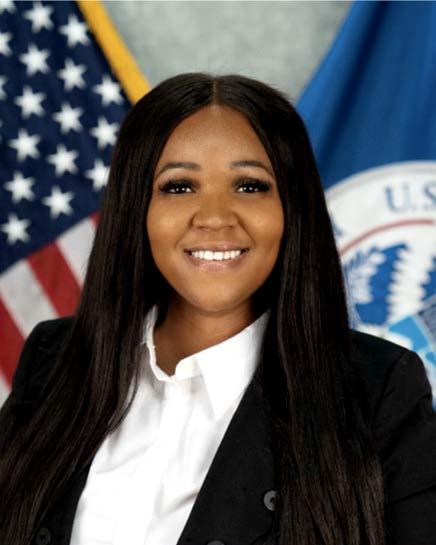
As a Cybersecurity Advisor and Cyber State Coordinator for the Cybersecurity and Infrastructure Security Agency (“CISA”), what does your job entail?
As a Cybersecurity Advisor (CSA) and Cyber State Coordinator (CSC), I’m part of the team that leads CISA’s effort to understand, manage, and reduce risk to our cyber infrastructure. I’m one of over 50 CSA/CSCs — located in every state — whose job it is to connect our stakeholders in industry and government to each other and to resources, analyses, and tools that will help them strengthen their cyber security and resilience. We do this by providing stakeholders with technical assistance, tools, exercises, training programs, and information that can improve their understanding of common cyber risks and possible mitigation strategies.
Ryan P. Newell is a partner at Young Conaway Star gatt & Taylor, LLP. He can be reached at RNewell@ycst.com.

What types of services does CISA offer law firms?
At CISA, collaboration is central to our work. We detect and prevent cybersecurity risks where possible by sharing information, deploying detective and preventative technologies, publishing technical products and guidance, and providing incident response and “hunt” capabilities to minimize impacts of identified incidents and an evolving threat landscape.
We also recognize that while we all want the best defenses, money can be an issue, especially for small and medium sized businesses constrained by a smaller, limited operating budget and fewer IT staff than larger-sized business. Unfortunately, cybercriminals target these organizations because they know they are vulnerable.
In support of our critical infrastructure partners, we offer many voluntary programs, services, and products, including: cybersecurity risk management and resilience services and tools; technical assistance upon request; and expanded information sharing capabilities to improve situational awareness of threats, vulnerabilities, incidents, mitigation, and recovery actions.
What are the major threats facing companies, including law firms?
Unfortunately, our nation is facing unprecedented threats to our critical infrastructure, including geopolitical tensions, supply chain integrity, attacks through managed service providers and cloud service providers. More and more of the things we rely on are connected to the internet. It doesn’t matter if you’re doing business in the cloud or on-premises, the attack vector is large and growing. As cyber criminals relentlessly seek new ways to target and exploit national critical assets, cyber vulnerabilities — meaning ways critical systems are potentially exposed to malicious cyber activities — are one of the biggest strategic threats to our national security. Over the past year, we’ve seen a steady increase in both the prevalence and impact of cyber intrusions. We’ve also seen an extraordinary increase in ransomware attacks, where cyber criminals seize an organization’s data and/or devices, then demand a ransom payment.
Over time, these attacks have become more destructive, more expensive, and more widespread, hitting schools, banks, local businesses, government offices... the list goes on and on. Any organization, regardless of size, is at risk of being targeted. Meanwhile, hacking tools are becoming more widely available to almost anyone with malicious intent, and easy to acquire online.
As you can see, the intersection of these trends presents a gloomy picture of the current threat landscape. At CISA, we are closely tracking this evolving threat landscape on all fronts, and working with our private-sector, interagency and international partners to defend our critical infrastructure and plan, prepare for, and prevent cyber-attacks.
For the benefit of the cybersecurity community and network defenders — and to help every organization better manage vulnerabilities and keep pace with threat activity — CISA maintains the authoritative source of vulnerabilities that have been exploited in the wild: the Known Exploited Vulnerability (KEV) catalog (https:// www.cisa.gov/known-exploited-vulnerabilitiescatalog). CISA strongly recommends all organizations review and monitor the KEV catalog and prioritize remediation of the listed vulnerabilities to reduce the likelihood of compromise by known threat actors. Another way to stay up to date on all current threats is to subscribe to CISA alerts at cisa.gov.
Arielle Baine serves as a Cybersecurity Advisor and Delaware Cyber State Coordinator in the Department of Homeland Security’s Cybersecurity and Infrastructure Security Agency (CISA). Ms. Baine is a part of the Cybersecurity Advisor (CSA) Program, which directly supports CISA’s mission and vision to strengthen the security, reliability, and resilience of the nation’s critical infrastructure within Pennsylvania, Maryland, Virginia, and primarily Delaware.
What does it mean to be “cyber resilient”?
The reality is that we know that bad things will happen, so building resilience into our networks, our systems and our products and planning and exercising incident response is what we all need to be doing today to be prepared for the threats of tomorrow. CISA offers a Cyber Resilience Review that evaluates an organization’s operational resilience and cybersecurity practices. This means evaluating the maturity of an organization’s capacities and capabilities in performing, planning, managing, measuring, and defining cybersecurity capabilities. As it says in Presidential Policy Directive-21, cyber resilience is “the ability to prepare for and adapt to changing conditions and withstand and recover rapidly from disruptions; it includes the ability to withstand and recover from deliberate attacks, accidents, or naturally occurring threats or incidents.”
Would law firms benefit from an incident response plan? Why?
Cyber incidents have surged among small businesses that often do not have the resources to defend against devastating attacks like ransomware. As a small business owner, you have likely come across security advice that is out of date or that does not help prevent the most common compromises. For example, odds are that you have heard advice to never shop online using a coffee shop’s Wi-Fi connection. While there was some truth to this fear a decade ago, that’s not how people and organizations are compromised today. The security landscape has changed, and our advice needs to evolve with it.
On our website, CISA offers an action plan informed by the way cyber attacks actually happen. We break the tasks down by role, starting with the CEO. We then detail tasks for a Security Program Manager, and the Information Technology (IT) team. While following this advice is not a guarantee you will never have a security incident, it does lay the groundwork for building an effective security program.
A key component of this plan is the Incident Response Plan (IRP). A security program manager should create a written IRP for the leadership team to review. The IRP is your action plan before, during, and after a security incident. Give it the attention it deserves in “peace time”
and be sure to involve leaders from across the organization, not just the security and IT functions. There will be no time to digest and refine it during an incident.
What resources are available to law firms if they want to learn more?
The best way to request an assessment, or any other CISA service, is by contacting the Cybersecurity Advisor in your state. You can find contact information for each of CISA’s ten regions at cisa.gov/cisa-regions.
CISA offers a range of cybersecurity assessments that evaluate operational resilience, cybersecurity practices, organizational management of external dependencies, and other key elements of a robust and resilient cyber framework. These professional, no-cost assessments are provided upon request on a voluntary basis and can help any organization with managing risk and strengthening the cybersecurity of our Nation’s critical infrastructure.
Additionally, as part of our continuing mission to reduce cybersecurity risk across U.S. critical infrastructure partners and state, local, tribal, and territorial governments, CISA has compiled a list of free public and private sector cybersecurity services and tools(https://www.cisa.gov/ free-cybersecurity-tools-and-services) to help organizations further advance their security capabilities.
You can find this and all CISA resources on our website.
We’ve heard that October is Cybersecurity Awareness Month. What does that mean?
Since 2004, the President of the United States and Congress have declared October to be Cybersecurity Awareness Month, helping individuals protect themselves online as threats to technology and confidential data become more commonplace. This October, we are asking everyone to “See Yourself in Cyber.”
We encourage everyone to focus on what it means to “See Yourself in Cyber,” whether you
are already working in cybersecurity, you’re a vendor or supplier, an infrastructure owner or operator, a student, a job seeker, or an individual who uses the internet for work, school, or entertainment.
For our partners in industry, we encourage you to See Yourself as part of the solution. That means putting operational collaboration into practice, working together to share information in real-time, and reducing risk and build resilience from the start to protect America’s critical infrastructure and the systems that Americans rely on every day.
During October, we highlighted different ways individuals and organizations can improve their cybersecurity efforts, whether at home, work, or school, through the following key actions:

▪
Think Before You Click: Recognize and Report Phishing: If a link looks a little off, think before you click. It could be an attempt to get sensitive information or install malware.
▪
Update Your Software: Don’t delay – if you see a software update notification, act promptly. Better yet, turn on automatic updates.
▪
Use Strong Passwords: Use passwords that are long, unique, and randomly generated. Use password managers to generate and remember different, complex passwords for each of your accounts. A password manager will encrypt passwords securing them for you!
▪ Enable Multi-Factor Authentication: You need more than a password to protect your online accounts, and enabling MFA makes you significantly less likely to get hacked.
CISA offers a range of cybersecurity assessments that evaluate operational resilience, cybersecurity practices, organizational management of external dependencies, and other key elements of a robust and resilient cyber framework.
Ted Carroll
Meghan Dougherty
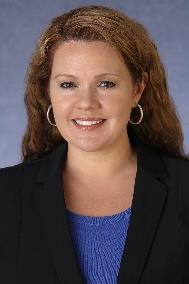
Kate Harmon
Kiadii Harmon
Christopher R. Howland

Carole B. Kirshner
Matthew J. Lynch
David C. McBride
Francis J. Murphy
Norman Monhait
Nicole M. Mozee
John L. Olsen
Donald E. Reid
William H. Sudell
Christian Douglas Wright
Bragging may seem like an inherent part of the legal profession — it is, after all, a profession involving wins and losses. But, as a recent case from California shows, lawyers can face significant consequences when their boasting goes too far.
California lawyer Robert McKenna III represented a gastroenterologist in his defense of a malpractice action. The physician, Dr. Essam Quraishi, was alleged to have caused the death of Enrique Sanchez, who had been admitted to the hospital for abdominal pain from pancreatitis. Dr. Quraishi inserted a feeding tube that accidentally pierced the patient’s colon, which, according to the Sanchez family, led to his death. The perforated colon was listed as the cause of death on the death certificate.
At trial, McKenna argued that Sanchez died from other errors made by hospital staff. He called the lawsuit a form of “extortion,” encouraged the jury to ignore the death certificate, and took aim at what he called the “personal-injury industrial complex.”
McKenna’s defense was successful — the jury returned a verdict in favor of Dr. Quraishi in less than 30 minutes.
McKenna returned to his office, where he gathered with colleagues and invited his co-counsel to ring a “victory bell.”
Someone recorded a video of the celebration, which included speech by McKenna in which he said that the case involved, “a guy that was probably negligently killed, but we kind of made it look like other people did it.” He mentioned the death certificate and the testimony of the coroner, bragging that they’d overcome
that evidence with an ultra-quick defense verdict.
The firm posted the video to its social media page but removed it after receiving negative comments and significant backlash.
Upon a motion by the plaintiffs, the trial judge vacated the verdict and ordered a new trial. Although there were several bases for that decision, the judge specifically cited McKenna’s comments as “extremely important” and stated, “I think I have to protect the system and say plaintiffs deserve a new trial.” The judge went on to say:
When he says on video a “guy was probably negligently killed,” probably is more likely than not. Then he goes on to say, “But we kind of made it look like other people did it.” … That seems like an admission of negligence. Seems like an admission the plaintiff should have prevailed.
The lesson here feels almost too obvious. Lawyers who brag to their colleagues in a recorded speech that they beat the system by shifting blame should consider the implications of their comments prior to engaging in this type of “bragging.” It is, of course, exciting to prevail at trial. It is exciting to obtain a victory for one’s client. But to openly state that you secured that victory by shifting blame away from your guilty client does seem to cross a line, to put it mildly.
Lawyers should take every precaution whenever they talk about their cases and clients. There are real risks to both the lawyer’s practice and reputation as evidenced by the case of Mr. McKenna.
Molly DiBianca is the Managing Partner of the Wilmington office of Clark Hill, PLC, where she litigates on behalf of businesses and employers throughout the State. She can be reached at mdibianca@clarkhill.com.



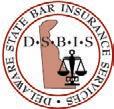


There have been a rash of attorneys and firms falling prey to exploitation of “good funds” disbursements. The economic loss to these attorneys is likely to be significant while help from the banks, insurance or law enforcement is unlikely.
The Office of Disciplinary Counsel’s response to date has been understanding and supportive to the Bar, leading to two “SCAM ALERTS” issued to all active attorneys (copy below reprinted with permission). However, as the mechanism of this fraud is publicized, an attorney falling victim to this scam after these alerts may have to explain or defend their professional competence and diligence in failing to recognize this scheme.
As a follow-up to ODC’s August 26, 2022, Trust Account Scam Alert (below), we want to let you know the scammers are continuing their scheme to steal money from Delaware lawyers. To date, we are aware of four (4) Delaware firms that have been contacted by scammers in the past six weeks, two of which wired money to the scammers from their firm Trust Accounts. One of the firms has been contacted multiple times by scammers over the past six weeks…and the pattern, which ODC is sharing with you, is similar.
First, a scammer typically contacts a Delaware lawyer through a firm website with vague inquiries about a potential engagement for a business transaction involving a breached contract or breached commercial lease in which the scammer is owed hundreds of thousands of dollars. The scammer also typically provides his/her name and contact information and the name of the potential adversary entity. Regrettably, ODC has observed that initial due diligence by a Delaware lawyer may not help disclose the potential scam. For example, most of the initial contact information provided by the scammer is accurate, i.e., the company name of the potential client is a real entity, the names of principals of the potential client are real, the IP address and email address of the potential client is correct and accurate, the name of the potential adversary, the names of the principals of the potential adversary, and the IP address and email address of the potential adversary are also real.
Next, thinking the initial inquiry by the potential client is legitimate, Delaware lawyers have responded by asking how they can be of service, and they schedule a telephone conference with the scammer to discuss the dispute and the nature and scope of the potential engagement. They also discuss hourly rates for the Delaware lawyer, the amount of an appropriate retainer to secure the engagement, and the terms of an engagement letter, which may or may not immediately be sent to the scammer.
Next, the Delaware lawyer receives a long email from the scammer, often attaching a copy of the signed engagement letter, and further outlining the dispute, the terms and scope of the engagement, and attaching a copy of the bogus contract or lease that was allegedly breached by the adversary.
A few days later, the Delaware lawyer receives a follow-up communication from the scammer, informing the Delaware lawyer that the adversary has agreed

to cure the breach (i.e., settle) and that a large check from the adversary, drawn on an account with Scotiabank in Canada, is being express delivered to the Delaware lawyer by the adversary and that the Scotiabank check should be deposited into the Trust Account of the Delaware lawyer, from which the Delaware lawyer may deduct the earned portion of the previously agreed upon retainer… and the balance of the funds (usually hundreds of thousands of dollars), should be immediately wired to an account number provided by the scammer.
This is sophisticated. To be clear, many firm websites provide the IP address and location of the sender of email correspondence, so you may be able to see when you receive an email from outside the U.S. If you do, we advise you to assume fraud. Our bigger concern is also asking you to be vigilant when you receive anonymous inquiries from Dallas or New York about a possible engagement. In addition to ODC’s admonition to all Delaware lawyers to be extra vigilant to the type of scams outlined above, which are ongoing, ODC is concerned that an initial response to a scammer from a Delaware lawyer may make the Delaware lawyer a target for similar, follow-up scams by inviting more “phishing” emails.
Thank you.
David A. White Chief Disciplinary Counsel
Office of Disciplinary Counsel
The Renaissance Centre

405 North King Street, Suite 500 Wilmington, DE 19801 (302) 651-3934

To assist the Bar, previous “Ethically Speaking” columns on the same and similar scams are available at www.dsba.org/publications/dsba-bar-journal/. They include:
▪
Are You Really to Smart to be Scammed? Internet Scams and Attorney Trust Accounts (November 2008);

▪
Are You Still Too Smart to be Scammed? New Threats from Internet Scams to Attorney Trust Accounts (June 2011); ▪
Can You Trust Your Trust Account? (September 2011); ▪ Still More Threats to Your Trust Accounts (July 2015); and ▪ Cyber Risks (May 2019).
This would be a great time for a firm meeting including your account managers to discuss these issues. Also look for an important upcoming CLE co-sponsored by ODC on this topic.
“Ethically Speaking” is intended to stimulate awareness of ethical issues. It is not intended as legal advice nor does it necessarily represent the opinion of the Delaware State Bar Association.
“Ethically Speaking” is available online. Columns from the past five years are available on www. dsba.org.
Charles Slanina is a partner in the firm of Finger & Slanina, LLC. His practice areas include disciplinary defense and consultations on professional responsibility issues. Additional information about the author is available at www.delawgroup. com.
658-5279

It’s happened to all of us at one time or another. While dining out with family, watching a child’s soccer game, or even leaving the loo — an erstwhile acquaintance (or worse yet, a distant family member) approaches you. Perhaps you didn’t see them coming or you just couldn’t get away fast enough, but now you are trapped and faced with the ubiquitous inquiry: “I just have a quick legal question…”
What is a good lawyer, well-versed in the civility and professionalism of the Delaware Way, to do? Setting aside the potential for being considered aloof or even downright rude by deflecting the question, a lawyer’s well-meaning but unprepared answer to a legal question can be ethical quicksand.
First, understand your inquisitor is a “prospective client,” to whom you may now owe limited professional duties under the Delaware Lawyers’ Rules of Professional Conduct (“DLRPC”). DLRPC 1.18(a) broadly defines a “prospective client” as “[a] person who consults with a lawyer about the possibility of forming a client-lawyer with respect to a matter…” Whether a consultation has taken place depends upon the circumstances. DLRPC 1.8 cmt. 2. Accordingly, although the lawyer may not think it, just a brief conversation in the frozen foods aisle may be enough to create a legal “consultation.”
Second, given the likely lack of forethought inherent in such an impromptu meeting, the prospective client may “rush-through” or even forget important facts and details. Missed information has the potential to adversely affect the accuracy of any legal advice you might give. Consider telling the client that you can only provide the most basic information on the spot and recommend a more fulsome and confidential discussion back at your office — before you agree to provide any legal advice. In the alternative, if you choose to provide instant advice, be sure to explain it is premised upon the limited information provided by the client and, to avoid future misunderstandings, make a note of the conversation for your file.
Third, be mindful about what information the prospective client discloses to you. Separate from potential privilege waiver issues, DLRPC 1.18(b) provides, “[e]ven when no client-lawyer relationship ensues, a lawyer who has learned information from a prospective client shall not use or reveal that information” except as permitted by DLRPC 1.9 (Former Clients). This raises the specter of a conflict of interest for both you and the other lawyers in your firm with whom you are associated. In the absence of informed consent, DLRPC 1.18(c) prohibits representation of another client “with interests materially adverse to those of the prospective client in the same or a substantially related matter.” For this reason, consider cutting your conversation with the prospective client short and asking for further follow-up after an appropriate conflicts check can be completed.
Fourth, when conversing with the prospective client, it would be wise to ask whether they have already retained
other counsel. While it is only natural for someone receiving unwelcome advice to seek a second opinion, be wary of prospective clients “shopping-around” for the legal advice they want to hear, not what is feasible, reasonable, or practical. To be clear, providing a second opinion is fine, but a prospective client seeking a decision by committee or, worse yet, to undercut their current counsel’s advice will cause headaches for both you and retained counsel.
Finally, clients come to us with various levels of sophistication and expectations regarding the legal system’s potential to solve their problems. It is very possible a prospective client who approaches a lawyer on a ski slope may not have wholly realistic expectations about both the legal system and the lawyer’s ability to provide them a meaningful solution. No matter how brilliant or capable a lawyer is, bar admission does not come with a magic wand — and “quick legal questions” rarely have “quick legal answers.”
So, the next time you are propositioned for legal advice by a prospective client at Costco, unless you are an expert in the pertinent area of law, absolutely certain you have all the facts, and have a photographic memory enabling an instantaneous conflicts check, just say “no” — and tell him to make an appointment.
Kathy Vavala has been Deputy Disciplinary Counsel for the Office of Disciplinary Counsel of the Supreme Court of Delaware since 2013. She also teaches as an Adjunct Professor at Delaware Law School and Saint Joseph’s University. Kathy can be reached at Kathleen. Vavala@delaware.gov.
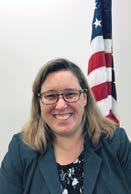
It is very possible a prospective client who approaches a lawyer on a ski slope may not have wholly realistic expectations about both the legal system and the lawyer’s ability to provide them a meaningful solution.
As a practicing attorney or judge, and as a human being, what better time than now to reflect on the past year and what you have behind your cool image? This is a Delaware Lawyers Assistance Program (DE-LAP) tradition to encourage you to assess where you have been, where you are presently, and where you plan to be in 2023. It is time to look in the mirror, pull off the mask, and take note of what is behind your cool image — both professionally and personally.
This self-audit is a tradition for the DE-LAP Zone and has been for the past 16 years. You may ask, “Why take the time for a self-audit? I already have a cool image — after all, I survived COVID-19, inflation, and more.” Yet others may use this article to reflect, change, plan, and implement a new blueprint for goals to carry into and realize in the coming 2023.
We know that lawyers are referred to as great problem-solvers. It is imperative for lawyers to realize that even when he or she may be highly successful in treating a client’s dilemma, all too often it is difficult for many to address their own concerns, goals, plans, wellness, and stamina.
Lawyers and judges often exhibit a cool image to their clients, families, and peers, but often fall prey to the “shoemaker syndrome” — recalling the tale of the shoemaker who had time to fix everyone else’s shoes but his or her own.
The day-to-day pressures of dealing with all the change, dealing with difficult people, ever-changing technology, the deadlines of practicing law, backlogs, and the ongoing responsibilities of life itself, can cause a lack of time for those in the le gal profession to take time for themselves, practice self-love and selfaccountability.
This lack of time, or the lack of enthusiasm to take time to reflect, is unfortunate because it is important for all of us to pencil ourselves into our calendars. We need to realize that behind the cool image, lawyering in the 21st century takes foresight, patience, courage, excellent legal skills, plus, personal wellness, resilience, and stamina.
▪ Do I have realistic short-term, as well as long-term plans for my law office, my career goals, and my personal life?
▪ Do I have a written budget and accounting practices in place for 2023, both professionally and personally?

▪ Did I monitor the types of cases that were most and least profitable in 2022 to plan for 2023? Is my billing up-to-date?
▪ Do I have an updated checklist for Lawyers Planning to Protect Clients’ Interest in the event of my death, disability, impairment, or in-
capacity? Is my “substitute” attorney updated on my annual registration and malpractice insurance? Do I have a plan for succession?
▪ Do I feel that I work too many hours? Am I realistic about the strain of the “billable hours?” Do I feel that I am spinning wheels? If so, can I design a plan to add more balance to my life and learn to implement it.
▪ Do I have a blueprint for my personal wellness plan in order to maintain my stamina and fitness to be the best attorney and person possible?
Typically, a performance appraisal is limited to the feedback process between employees and supervisors. This input approach to performance feedback is sometimes called “360-degree assessment.” A lawyer, like other business people, should write a strategic business plan that includes short- and long-terms goals. This written plan allows you to focus on what you need to do today, next week, and next month in order to position yourself so that you and your business are traveling in the right direction and do not end up derailed.
All firms — solo, small, or large and new or old — need a written budget in today’s competitive marketplace. This budget should be implemented and reviewed regularly. Ideally, you should work with an accountant familiar with
law firms of your size. Your budget should include all fixed expenses for the coming year on a month-to-month basis. This allows you to keep an eye on spending and billing. Similarly, you should work with a financial advisor or accountant.
Monitor the types of cases that are most and least profitable. Stop doing work that is not profitable. (This does not include your pro bono work.) That includes those cases that take a lot of your time and the clients either do not pay, will not pay, or the case is just a bowwow. Many hard-working, honest lawyers find that their expectations about getting paid are not shared by their clients. The result is stress, frustration, and problematic cash flow. Therefore, weed them out. Don’t be too nice at your own expense.
Life events happen. Most individuals will deal with loss, trauma, and change at some point in their lives. It is part of being human. Although, for many lawyers it is a frequent trait to ignore unpleasant thoughts such as disaster, unexpected illness, misfortune, or death. By ignoring these events, we fail to prepare for the day the unexpected happens which may prevent us from executing our responsibilities as lawyers: the law office, the clients, the existing deadlines, and the staff. Therefore, fill out an updated checklist for Lawyers Planning to Protect Clients’ Interest in the event of your death, disability, impairment and incapacity.
Once you have the written plan, it is vital that you implement it. Implementation is action, and action converts your visions into a strategic plan for 2023 and beyond. Monitoring and management are essential to the success of your plan. Through both business and personal management, you build the foundation and framework that unifies purpose and meaning, while maintaining the stamina you need behind that cool image.
Fortunately, most lawyers are passionate about practicing law, although,
some lawyers may not devote enough time to their personal wellbeing. It is not too late to review some simple procedures that can contribute to time, money, and the establishment of habits that can enhance you and your professional life.
Take time to plan, implement, and manage both professionally and personally — it is the road to success. Prioritize your personal wellness. If there are changes you want to make, take small, realistic steps in achieving those changes.
If you keep yourself fit, healthy, and relaxed, you are better prepared emotionally and physically to tackle the stresses of everyday life. With this selfaudit, find out how well you look after yourself and discover why self-love and self-care are necessary.
Committing to the process of becoming self-actualized can feel overwhelming. Try not to get too caught up in doing all the “right” things. Small action steps in self-care encompasses attending to your physical, mental, emotional, and social needs. It means managing your time and being assertive in prioritizing for yourself. Only when you can care for yourself can you care for others.
Many of us love being a legal professional and take great pleasure and pride in 21st century lawyering. Realistically, it takes planning, implementation, management, and DE-LAP’s annual selfaudit may be the difference between success and failure. It is all about progress, not perfection.
For more information on the topics discussed above and for free check-lists call: DE-LAP or email cwaldhauser@ de-lap.org. Remember too, if you or someone you know is having problems that are affecting your/their ability to practice law of quality of life, call DELAP or (302) 777-0124.
Carol P. Waldhauser is the Executive Director of the Delaware Lawyers Assistance Program and can be reached at cwaldhauser@de-lap.org.
1. Whatever you are, be a good one and behave yourself.
2. Optimism can take you anywhere. Do what you like; like what you do — good vibes are contagious.
3. Be “good selfish.” Before you can give other people what they need, it is important that you are first able to take care of yourself.
4. Keep your hands off your clients’ money.
5. Tell the truth, be honorable, be humble, be kind, and show civility.
6. Laughter can help you stay healthy.
7. Give straight answers; think first.
8. Define your goals: Remember you are first a professional, then a businessman. If you seek riches become a businessperson, then hire an attorney.
9. Tell your clients how to behave — if they can’t, they don’t deserve you as their attorney.
10. Solve problems — don’t become one.
11. Have ideals you believe in. Be creative and think outside the box.
12. Don’t do anything that you wouldn’t be proud to tell your mother about!
13. Move a muscle; change a mood.
14. Progress, not perfection.
15. Calculate your carbon footprint and take steps to make improvements — remember baby action steps.
16. Make time for relaxing activities.
17. Make it a point of taking care of your appearance and health.
18. Learn to say “no” when people make demands of you.
19. If you need help; get it.
20. If you need someone to talk to, make that confidential call to the Delaware Lawyers Assistance Program (DE-LAP).
 BY KRISTEN S. SWIFT, ESQUIRE
BY KRISTEN S. SWIFT, ESQUIRE
This three article series in the “Creating Space in the Law: Leadership, Advocacy & Women” column is authored by Leadership Brand and Career Strategist and Coach Karen Huller. These articles focus on setting professional women up for successful salary negotiations. Part one appeared in the September 2022 issue of the Bar Journal and discussed motivations underlying negotiating pay increases. This article discusses actual negotiations methods and the third installment will answer questions to hopefully prepare the reader to overcome barriers surrounding these conversations.
In the September 2022 issue, I cited studies that demonstrate that women do more of the work for a lot less money. Yet female law partners are about as satisfied as male partners, even though the gender wage gap and work gap is even wider among law partners. Female law partners are typically women who have been rewarded for their efforts and success by making partner. Certainly, they have every reason to be satisfied in their career overall, and yet when I think about their male counterparts making 33 percent more in income and imagine what a woman could do with all of that “extra” money, I cannot imagine her being satisfied.
Are female partners really satisfied with that, or are they afraid to rock the boat, to push their luck? Do they fear losing it all? Are they just that appreciative and blessed? It doesn’t make much sense to me.
According to a different study I cited,1 droves of women (not necessarily partners), 60 percent at the prime of their careers,
have left top law firms and have not returned for reasons that further reinforce that women have to do more of the work at home with less support just as they do at work.
Where does change begin?
If you said the onus is on partners to drive equitable pay at their firms, you would be right. There are firms who are working on that.2
If you said the onus is on women to learn how to advocate for themselves, simultaneously making it easier for women who come after them to do the same, you not only would be right; you would be historically accurate, based on how real change has happened in America.
Once you empower yourself to advocate for your own best interests, the first step is defining what you really want. This is surprisingly harder for women than men, in my professional experience. Notice whether, as you start to visualize your life with better pay, better conditions, better career opportunities, and/or better worklife balance, you start to experience doubt about the viability of this future, thoughts of unworthiness, disappointment about past efforts or expectations. It is okay if you notice this. There is power in the noticing, and it will make it easier to recognize and call out these “falsehoods” as they come up in the negotiation process. Then, return to visualizing so that you can clearly “see” what it is you want. Write it all down.
Can you get everything you want? Maybe. Maybe not.
Maybe what you want is possible where you are, and maybe it is possible somewhere else. Does anyone have what you want? If so, why not you?
As a female lawyer, you are much more equipped than the average female professional in negotiating. And while it is true that those you negotiate with will be male partners 76 percent of the time3 and are also trained negotiators, you will learn below how to avoid the usual power dynamics and instead apply a negotiation methodology that plays to women’s strengths.
While it is also traditionally harder for women to do this step, missing it is a major reason why previous attempts at negotiating and advocating for yourself may have failed. It’s knowing your worth.
Certainly this includes doing a competitive compensation analysis using a combination of websites such as salary.com, glassdoor.com, indeed.com, and onetonline.org, niche law recruiters, peers, and professional organizations to identify the low end, high end, average, and mean incomes for your area of law and location. This also includes identifying and articulating what makes you uniquely valuable talent.
It has been observed and measured4 that women are far less likely to engage in self-promotion than men. We could speculate that this is also due to conditioning, but it also may be due to natural disposition. Additionally, studies show 5 that when women exhibit masculine traits traditionally associated with business success in men, like assertiveness, it backfires. The way women self-promote doesn’t have to be overt, braggadocios, or aggressive.
It can look like making sure the team you led gets accolades for what they have achieved, leaving out there the implication that you led them there, or you engage a sponsor at meetings to make sure that when you give away that credit, someone also speaks on your behalf to make sure you also take some credit. Leading up to your salary negotiation, make a pointblank call to action of a credible colleague (male or female) you already consider to be an ally. Let them know you are going to “tap their shoulder” when you accomplish something and ask them to help you promote it. Imagine if women did this for each other more often! Write up a summary of your successes. Make it as easy as possible for your sponsor to shine a spotlight on you. The more clout this person has, the better.
Even if there is no one where you work you consider to be a good sponsor candidate, social media has made it possible for your accomplishments to go public and have an even wider audience, which in-
cludes other potential employers. Again, there is a way to do this that feels more in alignment with a woman’s natural inclinations storytelling. Some stories you can’t tell due to confidentiality, so I will offer some ideas on how to decide what stories you can tell that will help you accomplish the same goal.
Make a list of your qualities, talents, driving values, unique professional and personal experiences that have shaped who you are and how you approach your work, and outcomes they produce, whether in life or in your career. Engage people who know you well in this exercise.
I have found that when my clients ask their top four confidants to provide feedback on their branding points, which are essentially four to six bullets that explain the connection between the above components, the feedback they receive is powerful reinforcement of the unique value that they offer. Even if they start out a bit tenuous in the ask, after this exercise they stand a little taller, walk a little prouder, and act a lot bolder.
Tell stories that demonstrate these qualities and the outcomes that they have produced for the people around you, whether they are in your professional or your personal realm. In your LinkedIn profile, integrate and embed these stories in your headline (after your title), your “About” section, and within each professional experience. Stories are specific points in time, not generalizations. Your “About” section will introduce the general themes of these stories, starting with a hook to inspire visitors to click on “read more.”
Integrate these stories into your updated résumé, as well. Have it ready. Just knowing it’s ready to go will help you feel prepared for anything.
Utilize all of the various sections of LinkedIn that apply to you — volunteer work, publications (or speaking appearances), projects (with co-creators), professional organizations, honors and awards, etc.
Make sure you have invited everyone to your network who is on LinkedIn with whom you are on a first name basis, as well as those you meet while out and about. When you make this a habit, your efforts do double-duty and it helps you expand your network authentically and your visibility exponentially.
Join and engage in the maximum number of groups that are applicable to you, and consider special interests groups in addition to professional groups. Engage with people by commenting about newsworthy cases and stories. When you find alignment, invite people to connect.
Why invest time in developing your brand and network on LinkedIn? Because:
▪ It elevates your perceived value;
▪ It exposes you to other professionals and opportunities;
fear the most is not as bad when we look at it in the light of day.
You have options, as other women have demonstrated.
▪ Stay the course
▪ Influence and lead change where you are
don’t, you have options.) So many companies are spending so much money trying to figure out how to keep their talent around. You are going to make it super easy.
▪
It lays a strong groundwork and foundation for any future career moves;
▪
It keeps your network activated so that you have momentum on your side; and
▪
It gives you leverage to have an exit strategy, even if you don’t want to use it.
Be willing to walk away! Decide ahead of time what you will do if you do not get the result you want. You will not be making threats to corner your employer to oblige your self-advocacy. Rather, you go into negotiations with alternate exit plans so that you maintain your autonomy and power in the process no matter what happens. You still get to choose. It’s not a threat, though the increased visibility of your value can feel threatening to any employer, especially now. This is one of the toughest hiring markets. With all those women having left big law, not to be seen aiming to return again, the talent pool has shrunken.
It also helps you mentally prepare. Go through the worst-case scenario in your mind (only after Step 2). Often what we
Do the same thing, but for a different organization
▪
▪ Create your own entrepreneurial path
When you make the ask, use your own words to relay how you have researched, taken stock of your value, and evaluated what you need to thrive. Articulate your value in four to six concise bullets.
▪
Inventory your talents and skills, and then reinvent and rebrand yourself for a totally different career
▪ Retire and donate your time to worthy causes
This isn’t as long of a conversation as most people think. People are often resistant to initiate this meeting because of a perceived lack of time for it. Once that obstacle is out of the way, it’s time to eat the frog.
Now you are prepared with compensation comps, various ways to articulate what you have substantiated value that you offer through stories you’ve already written, and practiced that include outcomes you have produced. You also have LinkedIn activity churning in your favor. You have a clearly defined ask that includes an equitable compensation, and perhaps also some perks and conditions that would inspire even greater engagement because they offer you better support. You may also have a consolation ask should your initial ask be rejected. You know what you’ll accept and you know that what you really want is out there and available elsewhere if your company or firm can’t make it happen for whatever reason.
Come to the negotiation table, not with a winner-take-all mindset, but as a win-win-maker. Operate under the assumption that you are valued, they want to keep you happy, they want to keep you there, they will be willing to make some adjustments to do that, and they would rather do that than lose you. (And if they
Traditional negotiation dictates that you don’t “show your cards” first, but that creates animosity and undermines the spirit that women best embody in negotiations — that of the bridge-builder. Just lay down your ask. Then shut up.
In the next issue, I will write about the “what ifs” before and after this point.
1. “Why Are Women Leaving Big Law and What Can Law Firms Do about It?” JD Supra. Accessed October 21, 2022. https://www.jdsupra.com/ legalnews/why-are-women-leaving-big-law-andwhat-6682026/.
2. Bell, Jacqueline. “These Firms Have the Most Women in Equity Partnerships.” Law360, September 14, 2021. https://www.law360.com/legalethics/articles/1416538/these-firms-have-the-most-womenin-equity-partnerships.

3. Weiss, Debra Cassens. “Female Lawyers Still Underrepresented, Especially in Partnership Ranks; Which Law Firms Do Best?” ABA Journal, September 16, 2021. https://www.abajournal.com/news/article/ female-lawyers-still-underrepresented-especiallyin-partnership-ranks-which-law-firms-do-best. .
4. Miller, Jo. “The Soul-Crushing Truth about Women and Self-Promotion.” Forbes. Forbes Magazine, April 21, 2021. https://www.forbes.com/sites/ jomiller/2021/04/29/the-soul-crushing-truth-aboutwomen-and-self-promotion/?sh=61a588036906.
5. Menzies, Felicity. “Gender Bias at Work: The Assertiveness Double-Bind.” Include-Empower.Com. Accessed October 21, 2022. https://cultureplusconsulting.com/2018/03/10/gender-bias-work-assertiveness-double-bind/.
Karen Huller is CEO of Epic Careering, the cofounder of The Consciousness Conference (ConCon) and the C3: Corporate Consciousness Co-op community on LinkedIn. She is the creator of the Corporate Consciousness Ripple Blueprint and author of Laser-sharp Career Focus: Pinpoint your Purpose and Passion in 30 Days . She founded Epic Careering, a conscious career and leadership development firm specializing in executive branding, talent-values alignment, and conscious culture, in 2006. She can be reached at karen@epiccareering.com.
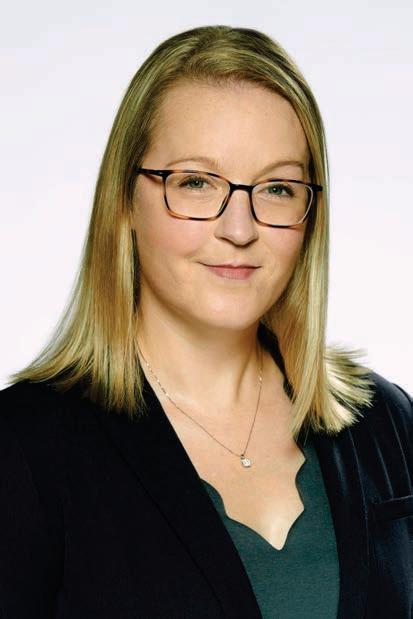





The following pages include a non-exhaustive list of law-related organizations to consider getting involved in. We hope to revisit this topic in a future issue, as the list of places to participate in continues to evolve and grow. If you have a suggestion, please share it with us!

The Delaware State Bar Association, along with many law-related and community organizations, offer a myriad of ways to enhance your experience as a member of the Delaware Bar.
Why join a section of the Bar? A team is always better than an individual. Neil Armstrong couldn’t step on the moon without Buzz Aldrin and Michael Collins and the 300,000 men and women who worked on the Apollo launch. Could Yogi Berra win five straight World Series all by himself, without the aid of stellar teammates that included DiMaggio, Mantle, and Ford? Where would O.J. be if he only had one lawyer?
A DSBA Section is your team. And you can have many teams! Here is a group of attorneys who practice a particular field of law or who share a common bond, senior attorneys and new attorneys, a diverse group of people with a common passion. Some attorneys look at joining a section as a way to expand their base of friends, contacts, and potential referrals. Some see it as a means of sharpening their own practice or learning from discussions among the section members. Some see joining a section as a way to expand their own range of knowledge of the law and to keep their options open for the changes that inevitably come.
Sections also have a profound impact on the law. The Corporation Section updates the corporate statutes each year. Similarly, the Commercial Law section, Family Law Section, Estates and Trusts Section, and Real and Personal Property Sections work with state legislators to devise better laws in these areas.
Other sections, like the Women and the Law Section, the LGBTQ+ Section, and the MJL Section are often asked to provide insight on the law from the perspectives of their groups. Most of us are affected daily by the laws, rules, and statutes that are borne out of section meetings.
As an attorney, you swore an oath to support the U.S. Constitution and the Delaware Constitution and behave “to the best of my learning and ability.” Joining a section helps with that oath, because alone, you are just one voice and one mind, but in a team, you can strengthen your learning and abilities to best serve clients and the Court.
For more information about joining a DSBA Section, visit www.dsba. org/sections-committees/sectionsof-the-bar/ or email LaTonya Tucker at ltucker@dsba.org.
The Delaware Bankruptcy American Inn of Court is part of the Inns of Court, an international organization for lawyers with hundreds of chapters throughout the world focusing on practice area, region or both. Our current Co-Presidents are Chief Judge Laurie Selber Silverstein and Judge Karen B. Owens. We have more than 150 members comprised of judges, attorneys, law clerks, and law students. The DBAIC has proudly maintained a Platinum status for 10+ years. Platinum status is awarded to only a small percentage of chapters per year for chapter excellence. The Delaware Bankruptcy Inn of Court’s main goals are:
Mentorship – Focus on having younger members taking leadership roles, with guidance from more experienced members of the Bench and Bar.
Collegiality/Networking – Getting to know the Bench and Bar in a more informal and relaxed setting.
Civility – Working together and experiencing what makes being a Delaware lawyer special.
If you are interested in learning more, contact Executive Director Ronald S. Gellert, Esquire, at rgellert@gsbblaw. com.
Welcome from the Holland Inn! Our Inn promotes the ideals of the Inns of Court within the area of Workers’ Compensation. Since our first year (2013), the Holland Inn has been recognized with the elite Platinum status. Our Platinum status designation is due to our focus on providing memorable experiences and social interactions for our membership. Past experiences included visits to the U.S. Supreme Court, publication of the Supreme Cuisine cookbook, annual Thanksgiving food drives providing dinner to families in need, and themed meetings including our famous “Chili Cook-off” and “all you can eat Fajita Bar for Cinco de Mayo.” For more information, contact President Michael G. Owen, Esquire, at mowen@morrisjames.com.


The Richard K. Herrmann Technology Inn brings together judges, lawyers, and law students to study the impact of technology on business and the effect of technology on the practice of law and in particular electronic discovery. The Inn was named after Richard K. Herrmann to recognize his outstanding contributions to the practice of law as the “Dean of Technology in Delaware,” and for his steadfast devotion to using technology to improve the practice of law in Delaware. It is the first American Inn of Court to deal exclusively with the subject of technology and electronic discovery. For more information, contact President Ryan P. Newell, Esquire, at rnewell@ycst.com.
I highly encourage everyone to get involved! These organizations are a wonderful way to learn more about the legal profession, stay up to date on new trends and issues, and connect with the local community in meaningful ways.”
Jennifer Ying, Esquire Morris, Nichols, Arsht & Tunnell LLP
Join the Melson Arsht American Inn of Court to catch up with others and engage in discussions about current issues faced in the Family Court. The Melson Arsht Inn of Court provides an opportunity for judges, commissioners, attorneys, law clerks, and law students to gather for professional development in a relaxed setting. We meet on the second Tuesday of the month at 5:00 p.m. at Porky Oliver Golf Course for a social hour, dinner, and program from September through May. The Melson Arsht Inn of Court is committed to promoting professionalism, civility, and ethics in the practice of family law. If you are interested in joining, please contact Shauna T. Hagan, Esquire, at shagan@haganfamilylaw.com.
“
The Richard S. Rodney Inn of Court is Delaware’s general litigation Inn. Members of Rodney Inn have diverse professional backgrounds and experiences and include civil and criminal practitioners and state and federal judges. The Inn’s goal is to foster excellence in professionalism, ethics, civility, and legal skills. The Rodney Inn achieves that goal through a combination of networking events and programs. The Inn meets monthly between September and May. Individuals interested in joining Rodney Inn may contact the Inn’s Secretary, Mackenzie M. Wrobel, Esquire, at mmwrobel@duanemorris.com or the Inn’s Assistant Secretary, Julie M. O’Dell, Esquire, at jodell@skjlaw.com.
The Delaware Law Related Education Center, Inc. (DELREC) is a private nonprofit, 501c(3) organization which has provided services to Delaware’s schools and the community for nearly a decade. Its most widely known programs are the Delaware High School Mock Trial Competition, the “We the People” Competition, and Law Day in the High Schools.
The Terry-Carey American Inn of Court is one of several American Inns of Court in Delaware. Since 1990, Terry-Carey has continuously brought together active and retired judges, lawyers, clerks, and other legal practitioners who work primarily in Kent and Sussex Counties. For more information, please contact the Inn’s President, The Honorable Reneta L. Green-Streett at (302) 735-2121.
The mission of the Center is to provide resources to enhance the presence of law-related education initiatives in Delaware. DELREC is a statewide consortium of educators, attorneys, judges, law enforcement officers, and other community leaders. For more information, contact Pat Quann at delrecntr@aol.com.

The Delaware Bar Foundation, the charitable arm of the Bar, was established to identify, fund, and promote programs that improve the administration of justice in Delaware, enhance public respect for the law and knowledge of citizenship rights and responsibilities. These programs include: civil legal aid; expungement expenses; citizenship courses for immigrants; an updated website for DVLS; and the quarterly Delaware Lawyer magazine. Please join us — donate, alert us of a missionaligned program, or express interest in a committee or the Delaware Lawyer editorial board. We appreciate all contributions of time, talent or treasure! For more information, please contact, Megan Greenberg, Executive Director at mgreenberg@ delawarebarfoundation.org or visit www.delawarebarfoundation.org.
The Combined Campaign for Justice is a joint fundraising initiative between the three civil legal aid agencies in Delaware. CCJ is a cornerstone of the partnership between Community Legal Aid Society, Inc. (CLASI), Delaware Volunteer Legal Services, Inc. (DVLS), and Legal Services Corporation of Delaware, Inc. (LSCD). All year long, funds raised by CCJ’s efforts are distributed to each agency as they are an integral part (nearly 15 percent) of their yearly budgets. Delaware’s three nonprofit civil legal aid agencies provide essential lifesaving, community-preserving legal help to Delaware’s most vulnerable citizens to protect homes, their health, and their safety. For more information contact Molly McPheeters at (302) 584-1479 or mmcpheeters@delawareccj.org.



The ACS is a non-partisan organization whose mission is to preserve the rule of law and democracy. The Delaware Chapter has more than 65 members, including lawyers (active and retired) and non-lawyers. We hold virtual meetings monthly and our committees include Constitution in the Classroom, Diversity, Voting Rights, and Path to the Bench. We collaborate with the Delaware Law School Student Chapter, and have jointly presented seminars on topics of interest to the public and legal community. To join, please contact Francis J. Murphy, Jr., Esquire, (fmurphy@ msllaw.com) or Matthew J. Lynch, Jr., Esquire (matthewjlynch@comcast.net). To learn more visit:www.acslaw.org.
The Federalist Society for Law and Public Policy Studies is a group of conservatives and libertarians interested in the current state of the legal order. It is founded on the principles that the state exists to preserve freedom, that the separation of governmental powers is central to our Constitution, and that it is emphatically the province and duty of the judiciary to say what the law is, not what it should be. The Society seeks both to promote an awareness of these principles and to further their application through its activities. For more information, contact Ryan T. Costa, Esquire, at costary@live.com.

The St. Thomas More Society of the Diocese of Wilmington is a fellowship of attorneys and other individuals who, inspired by the integrity of Saint Thomas More, seek to promote and foster high ethical principles, assist in the spiritual growth of our members, and encourage interfaith understanding. The Society sponsors various events during the year, including the Rubenstein-Walsh Seminar in Professionalism and Ethics (in conjunction with the DSBA), Annual Awards Dinner, Spring and Fall Lecture series, the Annual Red Mass, and social events. The Society also supports scholarships for disadvantaged children. Annual dues are $50 with no participation obligation. Website: www.stms-wilmington.org.

The Delaware Barristers Association was chartered in 1993 as the local affiliate of the National Bar Association (“NBA”). The NBA is the nation’s oldest and largest association of predominantly African-American lawyers, judges, law professors, and law students. The Barristers strive to promote professional and social interaction among Delaware legal community members; to uphold and extend the principles of justice in every phase of American life to the end that no person shall be discriminated against because of color, race, sex, religious beliefs, or national origin; and to encourage the participation of all members in the Delaware State Bar Association. Email debarristers@gmail.com or visit www.debarristersassociation.org for more information.
Delaware has long held the distinction of having the most members of the American Bar Association “per capita,” that is, in relation to the number of attorneys admitted in the State. There is a good reason for that. The ABA provides publications, leadership, and other service opportunities for Delaware lawyers, judges, and law students. Joining the ABA is easy and inexpensive, as is participating in one or more of the Association’s sections, divisions, or forums (and their respective committees and subcommittees). And ABA membership complements DSBA membership. As with membership in the DSBA, being a part of the ABA results in lifelong professional and personal relationships. For more information, please visit www.americanbar.org or contact ABA State Membership Chair William D. Johnston, Esquire, at wjohnston@ycst.com or (302) 571-6679.

The League of Women Voters is an inclusive, nonpartisan political organization that encourages informed and active participation in government. It influences public policy through education and advocacy, including by way of its Vote411 website. While voting rights are of the utmost importance, LWV also advocates in many other areas of interest, including education, climate change and energy, health care, government, criminal justice, and reproductive choice. LWV’s legislative agenda includes supporting amendments to the Delaware Constitution to incorporate vote-by-mail and same-day voter registration following the Delaware Supreme Court’s opinion that the General Assembly’s action on these measures was unconstitutional, and supporting a constitutional amendment creating an independent redistricting commission for the 2030 legislative redistricting. For more information, please go to our website at my.lwv.org/Delaware.
The Office of Women’s Advancement and Advocacy (OWAA) is responsible for overseeing the State’s women’s right work, including leading the ongoing implementation of women’s rights legislation, evaluating current women’s rights legislation, building support for new legislation, and advising the Governor’s Office, the Legislature, and the Secretary of the Department of Human Resources. The office will review and report on the status of women in the State as well as provide information on the status of women to the public, state agencies, the General Assembly, the Judiciary, organizations, businesses, and institutions, when necessary. The Office of Women’s Advancement and Advocacy also provides staff support to the Delaware Commission for Women and the Delaware Women’s Hall of Fame Committee. For more information contact Melanie Ross Levin, Director, at melanie.rosslevin@delaware.gov and find OWAA on social media @delawarewomen.
Support ACLU-DE’s legal work through the Amicus Society. ACLU-DE has been the “underdog’s watchdog” for over half a century. We take up the toughest civil liberties fights. Beyond one person, party, or side — we the people dare to create a more perfect union. To advance civil liberties in Delaware, we depend on lawyers like you.

The support of ACLU of Delaware’s Amicus Society members allows us to litigate high-impact cases, effecting tangible change in Delaware.

All Amicus Society members receive exclusive legal updates and opportunities to work with us on pro bono cases: you’ll be the first to know when we’re filing, and the first to receive updates as litigation unfolds.
We’ve been making history here in Delaware — help us to keep up that momentum. Join ACLU-DE’s Amicus Society today! Learn more at aclu-de. org/amicus or contact Melissa Bryson, Development Director, at mbryson@ aclu-de.org.
Since 1992, Survivors of Abuse in Recovery, Inc., affectionately known as SOAR, has been the only non-profit organization in Delaware dedicated to providing professional mental health services to victims of sexual trauma and their families regardless of a victim’s ability to pay. SOAR treats more than 2,000 individuals, including teens and children, annually in four locations — Wilmington, Newark, Dover, and Georgetown. SOAR is also working towards a more trauma informed legal system, including implementing a new psychological evaluation program. If you would like to learn more about SOAR, its services, ways to volunteer or to serve on the board, or donate, please contact SOAR through its Executive Director, Dr. Maya Khalid-Janney, at mkhalid@soarinc.com.

Monday, January 16, 2023 Breakfast: 8:00 a.m. LOCATION
Chase Center on the Riverfront 815 Justison Street Wilmington, DE 19801
More information about the Keynote Speaker, Breakfast, and Service Projects will be forthcoming. Sponsorships, ads, and tables will also be available.
If anyone or an organization has service opportunities for MLK Day 2023 and are in need of volunteers, please contact Nicole Mozee at Nmmozee@ gmail.com by December 16, 2022.
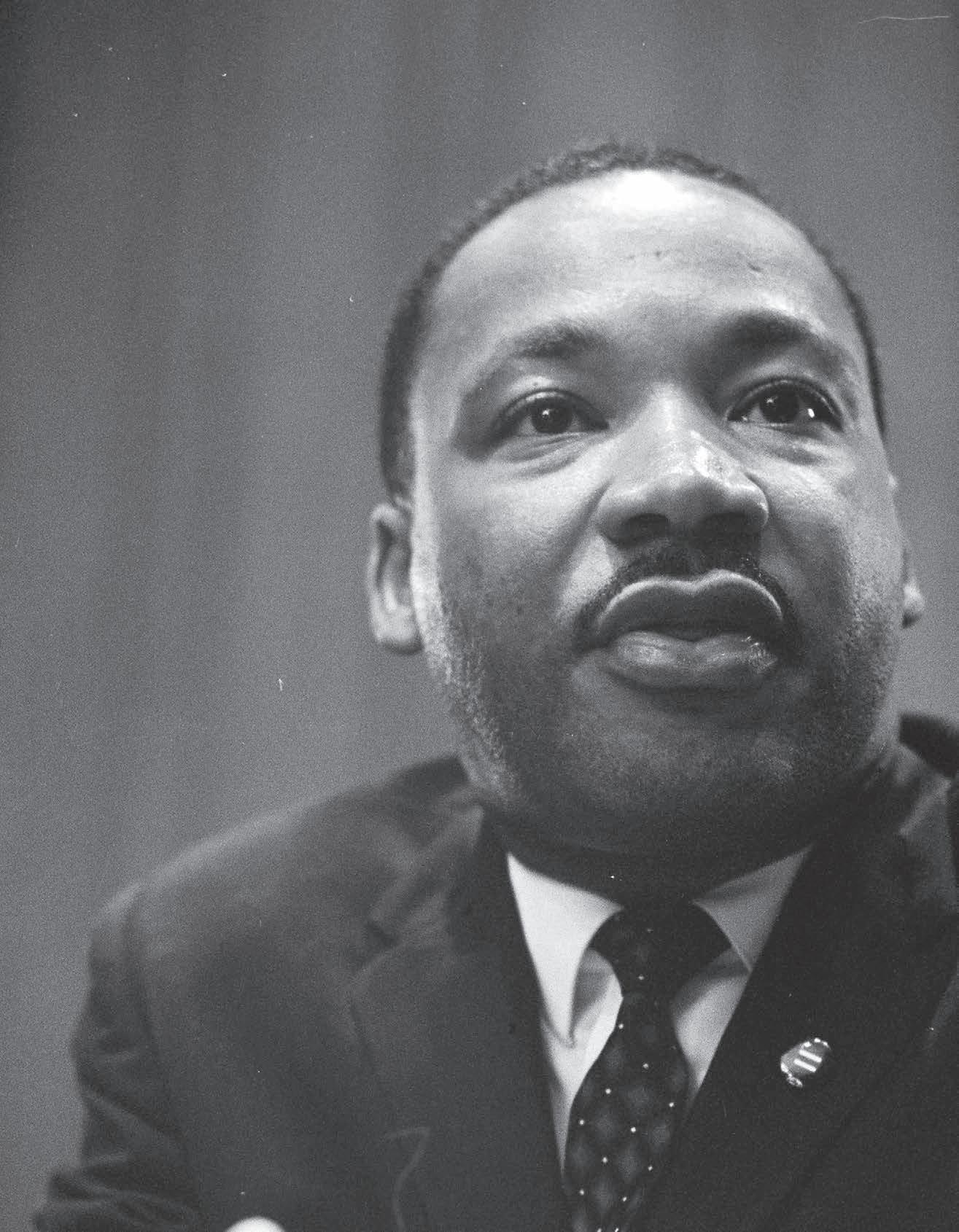
“The time is always right to do what is right.”
- Dr. Martin Luther King, Jr.
PLATINUM
$6,000
• One Designated Table of Eight (8) at the Breakfast
• Onsite Signage
• Full Page Ad in Breakfast Program
• Recognition of Sponsorship in DSBA Journal
GOLD
$4,000
• One Designated Table of Eight (8) at the Breakfast
• Onsite Signage
• Half Page Ad in Breakfast Program
• Recognition of Sponsorship in DSBA Journal
PLEASE INDICATE PARTICIPATION LEVEL:
SILVER
$3,000
• Half Table of Four (4) at the Breakfast
• Onsite Signage
• Quarter Page Ad in Breakfast Program
• Recognition of Sponsorship in DSBA Journal
BRONZE $1,750
• Two (2) Tickets to the Breakfast
• Onsite Signage
• Recognition of Sponsorship in Breakfast Program
• Recognition of Sponsorship in DSBA Journal
FRIEND $650
• Recognition of Sponsorship in the Breakfast Program
• Recognition of Sponsorship in DSBA Journal
q Platinum ($6,000) q Gold ($4,000) q Silver ($3,000) q Bronze ($1,750) q Friend ($650)
Ad: 3.5” wide x
Baird at
The Sponsor Contact will be sent a unique code to register attendees online once the registration form and payment are received. All sponsor seats must be registered by January 3, 2023. Any sponsor seats not registered by January 3, 2023 will be donated back to the event.
For Office Use Only
available for
for
per person. Visit www.dsba.org for online
The 14th Amendment transformed the Constitution. Some say it marks the completion of the original Constitution. Others have referred to it as a new birth of freedom. But, whatever description one might use, it was truly transformative and marked an important turning point in our nation’s history. Yet despite the amendment’s vast and historic importance, there are still substantial disagreements as to what the amendment was fully intended to do, the breadth of its coverage, and how it was meant to be applied. As but one example, before its first decision in Brown v. Board of Education , the Supreme Court ordered a second set of oral arguments on whether the 14th Amendment was meant to prohibit segregated public schools before concluding that the historical record was inconclusive.
Professors Randy E. Barnett and Evan D. Bernick have now provided what should become one of the standard reference works on this subject with The Original Meaning of the 14th Amendment: It’s Letter & Spiri t. There is a lot in this book and a lot to this book, and it is all well done. The authors mine the historical record, discuss the interpretations offered by other scholars, and bring a fresh perspective to much of their work. And, no doubt, many will find surprising insights and observations sprinkled throughout this volume.
 By Randy E. Barnett & Evan D. Bernick
By Randy E. Barnett & Evan D. Bernick

Belknap/Harvard Press, 2021
Barnett and Bernick begin with a March 12, 1871, four-page, handwritten letter from Supreme Court Justice Joseph Bradley to William Woods, a federal District Court judge in New Orleans who would one day join Bradley on the country’s highest bench. In that letter, which Barnett and Bernick do not believe has ever been published before, Bradley summarized his then-understanding of the 14th Amendment and how it was meant to be applied. Amazingly, the letter is almost entirely consistent with the approaches and conclusions offered by the two professors in their work. In the years after writing the letter, though, Bradley himself would go on to join an opinion contrary to a portion of the letter, and to author an opinion contrary to another part of the letter. It remains a mystery as to why Bradley changed his mind or reconsidered his positions. Nevertheless, the letter provides not only insight into the Justice’s thinking (at least as of 1871, when written), but serves as a sort of executive summary of Barnett’s and Bernick’s arguments, which they develop at length in their work.
The book itself is divided into three main sections, sections which, not surprisingly, track the three main sections of the 14th Amendment. The authors start with the “Privileges Or Immunities” clause, then discuss the “Due Process” clause, and conclude with the “Equal Protection” clause.
As to the “Privileges Or Immunities” clause, Barnett and Bernick, like many scholars, believe that the Supreme Court’s 1873 decision in the Slaughter-House Cases,
The Original Meaning of the 14th Amendment: It’s Letter & Spirit
w hich all but read the clause out of the Constitution, to be mistaken. They engage in a thorough review of the historic record and conclude that “privileges or immunities” refers to (i) a positive-law protection or specification of a natural right, and to (ii) a state-created good that was widespread, entrenched, and deemed central to citizenship. Justice Scalia once asked during a Supreme Court oral argument why the appellants were pressing the Court to overrule the Slaughter-House Cases when a substantive due process analysis and argument could just as easily lead to the desired result and not overrule the long-established precedent. Barnett and Bernick would have responded that fidelity to the text and meaning of the amendment, rather than adherence to old decisions which are now perceived as contrary to the amendment, increases judicial and legitimacy. Regardless, their discussion of the “Privileges Or Immunities” clause is compelling.
The professors’ review of the “Due Process” clause is equally compelling and, for many, may be surprising. The concept of “substantive” due process has long been criticized by some, who argue that the due process clause was only intended to ensure adequate procedural protections and was never meant to have a “substantive” component. Barnett and Bernick, however, argue that due process not only requires appropriate procedural protections, but also acts to limit arbitrary or capricious government action which goes beyond the scope of the states’ police powers. Ultimately, they argue, legislation is arbitrary (and therefore a “substantive” violation) where there is
an insufficient relationship between the means adopted by the legislature and the ends for which the legislation was adopted. Thus, under their reading, at least a modest form of substantive due process protection does exist.
With their analysis of the “Equal Protection” clause, Barnett and Bernick again offer some surprising analysis. They believe that DeShaney v. Winnebago County Dept. of Social Services, where Winnebago County officials did not act to remove four-year-old Joshua DeShaney from his father’s custody — despite knowledge of the father’s abuse — was wrongly decided. For the professors, the distinction between state action and state inaction at the heart of the DeShaney decision does not appear to have support under the 14th Amendment. Similarly, they argue that the Court’s decision in United States v. Morrison , holding the Violence Against Women Act unconstitutional, was also wrong. Barnett and Bernick read the 14th Amendment as allowing Congress to punish private action as part of enforcing the amendment.
Professors Barnett and Bernick have written a very comprehensive, compelling, and thorough review regarding the original meaning of the 14th Amendment. They review the history. They review the works of other scholars. They anticipate and defend criticisms which might be raised as to their own conclusions. One need not agree with everything the two men say in order to appreciate and learn from their work.
Finally, with respect to the Court’s request for a second oral argument
Brown , Barnett and Bernick would respond as follows:
Common schooling had not been pervasive for one generation by the early 1870s, when Republicans sought to bar discrimination in its provision when drafting what became the Civil Rights Act of 1875. But a more general right of nondiscriminatory access to institutions that were either (a) created and managed by the government for the benefit of the general public or (b) considered “affected with a public interest” by virtue of a natural or artificial monopoly was clearly widespread and entrenched in 1868. We think supporters of the 1875 act were correct in deeming the right of nondiscriminatory access to common schools to be a corollary of the latter right.
Whatever may have been the state of affairs in the 1870s, however, by the time Brown v. Board of Education was decided, a right to attend a public school clearly qualified as a privilege of citizenship under our [analysis].… We think the “separate but equal” doctrine was correctly held to be unconstitutional because it is a construction that was unfaithful to the concept of Republican citizenship comprising the original spirit of the clause.
Today no one doubts the correctness of the Brown decision, but had Barnett and Bernick’s research been available in 1952, the Court (and at least some of the country) could have taken even greater comfort in the authority upon which the decision rested.
Richard “Shark” Forsten is a Partner with Saul Ewing Arnstein & Lehr LLP, where he practices in the areas of commercial real estate, land use, business transactions, and related litigation. He can be reached at Richard.Forsten@saul.com.
in
The authors mine the historical record, discuss the interpretations offered by other scholars, and bring a fresh perspective to much of their work. And, no doubt, many will find surprising insights and observations sprinkled throughout this volume.
Mushrooms are one of my favorite fall ingredients. Mushroom stuffing, mushroom soup, mushroom tart…or just simply sautéed in butter and served alongside a nice piece of steak. Stuffed Mushrooms were my Aunt Sue’s signature hors d’oeuvre at holiday dinners, so I pay tribute to her this November.
Consider preparing these ahead of time and pop in the oven when your Thanksgiving guests arrive. These are ideal to nibble on while basting the turkey (or capon, like we do), mashing the potatoes, and candying the sweet potatoes.
My recipe is an adaptation of both Julia Child’s Champignons Farcis in Mastering the Art of French Cooking and Marcella Hazan’s Funghi Ripieni in The Classic Italian Cookbook. The key difference is that I prefer mine without a béchamel or cream sauce. I like to let the mushrooms really shine.
If enjoying at Thanksgiving, make sure that the wine you “splash” is a good pairing for your turkey and sides. Three Brooms Sauvignon Blanc from Marlborough, New Zealand, would be good choice for your white wine drinkers. Generally, the high acidity and minerality in Sauvignon Blancs balance the varied flavors of a Thanksgiving dinner - from a tart cranberry sauce to a rich sausage and cornbread stuffing. I enjoy Three Brooms for its balance of citrus (key lime) and biscuity flavors.
Wishing a Happy Thanksgiving to all.
Susan E. Poppiti is a mathematics educator and is pursuing qualifications in wine. Susan can be reached at spoppiti@hotmail.com.


• 12 Baby Bella (Crimini) mushrooms (at least 2 inches in diameter)
• 3 tablespoons unsalted butter
• 3 tablespoons finely chopped shallots
• 2 slices cured ham (Italian Prosciutto or French Jambon de Bayonne), chopped
• 2 springs thyme, leaves removed
• Dry white wine with some acidity, such as Sauvignon Blanc
• 3 tablespoons grated Parmesan cheese
• 3 tablespoons fine breadcrumbs
• Freshly ground black pepper
Preheat the oven to 375 degrees. Lightly butter the bottom of a baking dish. Gently rinse the mushrooms and dry with a paper towel. Remove the stems and slice off the ends. Let the caps drain on a paper town until ready to stuff. Finely chop the mushrooms stems.
Add the butter and shallots to a nonstick pan and sauté over medium heat for two or three minutes. Do not brown, rather, let the shallots remain translucent and golden in color. Stir in the ham, mushroom bottoms, and thyme, and sauté for another two minutes. Remove the mixture from the pan and place in a medium bowl. Pour a splash of wine into the pan, bring to a boil, and reduce for two or three minutes.
Add the grated Parmesan and breadcrumbs to the mushroom mixture and stir. Drizzle in some of the reduced wine, just enough to wet the mixture slightly. Set the mushrooms caps face up on the baking dish. Stuff with the mixture and sprinkle with additional Parmesan. Season with black pepper to taste. Place in the oven and bake for 15 to 20 minutes, depending on the size of your mushrooms, until the cheese has browned lightly. Let sit for a few minutes before serving.





JACOBS & CRUMPLAR, P.A., with offices in Wilmington, Dover and Millsboro, seeks a motivated Attorney with civil litigation experience and/or worker’s compensation. Candidate must possess a strong passion for representing others. Salary is dependent on prior experience and skill level. Send cover letter and resume to gina@jcdelaw.com.
PRACTICE seeks Delaware Attorney: To represent clients in Court, to assist with motion practice, discovery, research and case management. The ideal candidate possesses a demonstrated interest in Family Court work, litigation experience, good people skills and empathy for clients. We pride ourselves in work ethic, fairness, communication and respect. Training and guidance provided. Part-time or flexible schedule possible. A great opportunity for the right candidate. Please send resume and cover letter including relevant experience to george@tsakataraslaw.com.
MARKS, O’NEILL, O’BRIEN, DOHERTY & KELLY, P.C., a regional insurance defense firm, is looking for smart, hardworking Delaware attorneys of all experience levels who: 1) want to have the opportunity to work directly with clients; 2) are interested in taking depositions, arguing motions and defending clients at trial; and 3) believe they have the ability to handle matters independently either now or in the future. Candidates do not need to bring clients with them or develop clients (although those efforts have firm support.) What are you waiting for? Get started on your next career move. We have a hybrid home/office work culture, competitive salary and benefits. Candidates should email: ddoherty@moodklaw. com. We are an Equal Opportunity Employer.
Mc ANDREWS LAW OFFICES is hiring a Delaware special education attorney. Position includes litigation, client counseling, and review of educational records. Applicants must demonstrate superior research and writing skills, strong public speaking, and passionate legal advocacy. Prior special education experience preferred but not required; interest in disability rights necessary. Send resume, writing sample, and salary requirements to kryan@mcandrewslaw.com.
MG+M THE LAW FIRM is recruiting an Associate with 0-6 years of experience for our Wilmington, Delaware office. This associate will be working primarily on Delaware and national civil litigation, including commercial, general, and products liability litigation. Delaware bar license or pending admission is required. This is an excellent opportunity to join a nationally recognized and growing defense firm with opportunities to perform challenging legal work hands on and work directly with clients on day one. Candidates should have strong work ethic, writing ability, and organizational skills. MG+M offers an excellent benefits package with a hybrid work environment. Please email resume to wlarson@ mgmlaw.com.
WHITE AND WILLIAMS LLP’S DELAWARE OFFICE is actively recruiting for its Product Liability practice group. We represent some of the largest companies in the world in complex, high stakes cases and are looking for lawyers with 1 to 3 years of litigation experience to join our team. We offer a flexible, hybrid home/office work schedule backed up by 24x7 technical support. In addition to a competitive salary and excellent benefits, we are committed to the professional development of our young lawyers, including through trial advocacy programs, extensive client contact, and courtroom opportunities. Delaware Bar admission or a willingness to sit for the Delaware Bar is required. Please send your resume to Alejandra Hayward at haywarda@ whiteandwilliams.com for consideration.
SMITH, KATZENSTEIN & JENKINS LLP seeks an associate with 0-5 years of experience to work in our IP, complex commercial, and corporate litigation practices. Delaware Bar admission (or pending) required. We are looking to add a team member with strong writing and advocacy skills. We offer a competitive salary and benefits and a collegial work environment. Interested applicants should send résumé, along with a writing sample, to info@skjlaw.com.
Please check our website for details about the positions. http://www.declasi.org/ employment/.
DELAWARE DEPARTMENT OF JUSTICE currently has employment opportunities available for Deputy Attorney General positions in multiple divisions. For all opportunities and full job descriptions, please visit: https://attorneygeneral.delaware.gov/ executive/hr/career-opportunities/.
ASSOCIATE ATTORNEY: The law offices of Marshall Dennehey Warner Coleman & Goggin, a leading civil defense firm, is seeking an Associate Attorney for its Wilmington, DE office with 2 to 5 years of civil defense litigation experience. Medical Malpractice experience preferred, but not required. The successful candidate will assist in defending medical professionals including physicians, nurses and others, as well medical institutions, including hospitals and nursing homes, in what are often large exposure and complex cases. In addition, the hire will assist in defending a variety of high exposure General Liability matters. Firm offers a sound future, competitive salary and an excellent benefits package. Candidates should submit resume to HRRecruiter@MDWCG.com. We are an Equal Opportunity Employer AA/M/ F/D/V.
.
ASSOCIATE ATTORNEY: Marshall Dennehey Warner Coleman & Goggin, a leading civil defense litigation firm, is seeking an Associate Attorney for its Wilmington, DE office with 2 to 4 years of civil litigation experience to defend a wide variety of Professional Liability matters including Architects & Engineers, Insurance Agents & Brokers and many other professionals. Firm offers a sound future, competitive salary and an excellent benefits package. Candidates should submit resume to HRRecruiter@MDWCG.com. We are an Equal Opportunity Employer AA/M/F/D/V.
ASSOCIATE ATTORNEY: Marshall Dennehey Warner Coleman & Goggin, a leading civil defense litigation firm, is seeking an Associate Attorney for its Wilmington, DE office with 1 to 3 years of Workers’ Compensation litigation experience to join a thriving employer’s side practice team. Firm offers a sound future, competitive salary and an excellent benefits package. Candidates should submit resume to HRRecruiter@MDWCG.com. We are an Equal Opportunity Employer AA/M/F/D/V.
WIDENER UNIVERSITY DELAWARE LAW SCHOOL welcomes applications to join our full-time, tenure-track faculty, beginning the 2023-24 academic year, primarily in the areas of Torts, Criminal Law and Procedure, and Evidence. Applicants are invited to apply at widener.edu/ jobs. Applications will be considered on a rolling basis and applicants are encouraged to apply as soon as possible. Please contact Professor James R. May, Appointments Committee Chair, jrmay@widener.edu, with any questions.
LAWYERS’ ROW SUITE: 16’X9’ Furnished Office with 11’X7’ Window Plus 8’X7’ Workstation Plus Shared Access to Conference Room (14’X12’), Kitchen, and Reception Area; $900; (302) 888-1275.
OFFICE FOR RENT in a beautiful historic building. Shared services and facilities include conference and large reception area. Some furniture available. Reasonable rent. Excellent opportunity to open a new practice or continue a small practice in a collegial atmosphere. Call Bayard Marin (302) 658-4200.
Bulletin board rates are $50 for the first 25 words, $1 each additional word. Additional features may be added to any Bulletin Board ad for $10 per feature.
Submit the text of the Bulletin Board ad and payment to rbaird@dsba.org. For more information, contact Rebecca Baird at (302) 658-5279.


The Bar Journal started out as The Newsletter in 1978 and was later renamed IN RE: before the publication title evolved again to its current moniker of The Journal of the Delaware State Bar Association. Here are some of the earlier covers from the month of November: one from the inaugural year; another from 1990 featuring an article from current DSBA President Charles J. Durante, Esquire; and another from 1998, noting the passing of two “legal giants,” Louis L. Redding, Esquire and The Honorable Collins J. Seitz.


The Delaware State Bar Association Insurance Program, advised and administered by USI Affinity, offers a proprietary, comprehensive Lawyers’ Professional Liability program. Along with other business insurances to attorneys and law firms in Delaware.
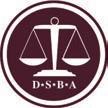
As a leading insurance broker for Lawyers’ Professional Liability, USI Affinity has been protecting Lawyers for over 50 years. We understand the business and the risks that attorneys and law firms face every day.

The DSBA Insurance Program Lawyers Professional Policy offers proprietary savings and coverages specifically designed to mitigate risk and close gaps in coverage.
Directors & Officers Liability insurance protects the past, present, and future directors and officers of a law firm from losses arising from “wrongful acts”.
EPLI coverage can be specifically designed to help protect the personal assets of a privately owned firm’s directors and officers, as well as the financial well being of the firm itself.